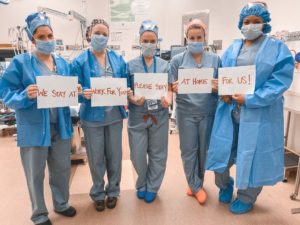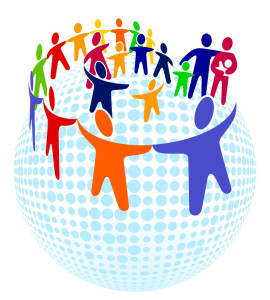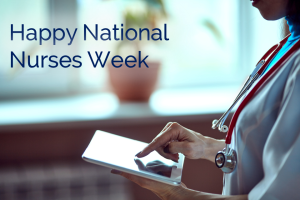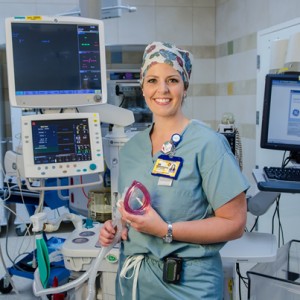May 6-12 is National Nurses Week. Nursing has been the most trusted profession for the past 20 years according to a Gallup Poll. That’s no surprise when you think about the nurses you have interacted with as a patient or as a colleague.
as a patient or as a colleague.
I’ve written a post about nurses almost every year since I started this blog. Do I have anything truly new to say this year? Yes, in that I want to highlight how the past three years has taken a toll on all our clinicians, in particular nurses. The public health emergency is expiring. Health care providers are adapting their policies as they continue to deliver care. We have entered a new phase for healthcare organizations, staff, patients, and families.
Staffing challenges are at the top of the list of concerns for many health executives – staff shortages and clinician burnout. There are no easy solutions. The toll of the past few years on our nurses was highlighted in a May 2nd NPR article by Jaclyn Diaz – “Nearly a third of nurses nationwide say they are likely to leave the profession“. The article starts with some sobering findings from the 2023 Survey of Registered Nurses conducted by AMN Healthcare. The survey examined the impact of COVID-19 on the career plans, job satisfaction, and mental health and wellness of more than 18,000 RNs. Key findings:
- Close to 1/3 of nurses nationwide say they are likely to leave the profession for another career due to the pandemic. This level is up 7 points since 2021.
- 89% of RNs said the nursing shortage is worse than five years ago, 80% expect that to get much worse in another five years.
- Younger generations of nurses are also less satisfied with their jobs compared to their older counterparts.
- 80% of nurses experience high levels of stress at work, an increase of 16 points from 2021.
- 77% of nurses reported feeling emotionally drained, up from 62% in 2021.
Of all the blog posts I’ve written about nurses, this one from five years ago has the strongest message – “Celebrate nurses, but more importantly listen to them”. This is true now more than ever. From the bedside to the boardroom we need to listen, amplify, and prioritize the voice of nurses.
IT leaders won’t solve the staffing challenges. But we have a role to play. The systems and solutions we provide and support as health IT leaders and vendors must help nurses do their job more easily and efficiently, not make it harder. We need to reduce the burden on nurses and ensure they are integrally involved in decision making, prioritization, and design processes.





